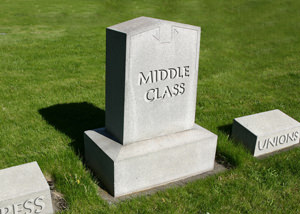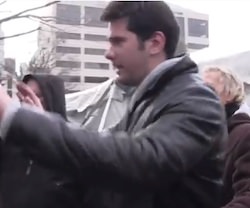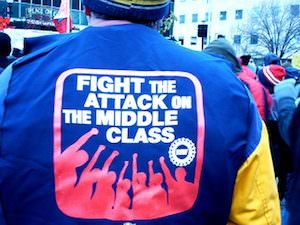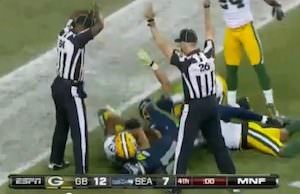Why Are Wages Low? Blame Workers for Not Knowing They Are, in Fact, Workers
The anti-union movement won the battle of self-perception. Union-friendly blue-collar workers have been supplanted by white-collar office drones who don't see themselves as candidates for unionization because they don't really see themselves as workers, author Edward McClelland argues.
There are a lot of reasons for the decline of the American middle class, and a lot of blame to be doled out to everything from corporate greed to globalization. But part of the damage has been self-inflicted by workers themselves — by not recognizing that they are, in fact, workers, even if they have college educations and white-collar jobs.
And if you don’t see yourself as a worker, you’re not likely to think of yourself as someone who could benefit from a union.
Author and journalist Edward McClelland explores that conundrum over at Salon in a piece that builds on some of the points he made in his book, “Nothin’ But Blue Skies: The Heyday, Hard Times and Hopes of America’s Industrial Heartland” (which I reviewed for the Los Angeles Times when it came out). In the piece, McClelland starts with the story of a young Rob Stanley who, after graduating from high school in 1965, went to work in a steel factory shoveling ore into a blast furnace for $2.32 an hour, or about $17.17 an hour today.
That job is long gone, along with millions of other blue-collar jobs. In its place: low-wage white-collar jobs or service-sector jobs. Some, like working in fast-food kitchens, take more training and skills than Stanley needed to shovel ore, McClelland argues. Along with that transition came the evisceration of the private-sector unions, which is a key factor in the growing income divide between the wealthy and the working poor. As is the self-perception of today’s workers as middle class, when in fact their wages are far from it. From the article:
So why did Rob Stanley, an unskilled high school graduate, live so much better than someone with similar qualifications could even dream of today? Because the workers at Interlake Steel were represented by the United Steelworkers of America, who demanded a decent salary for all jobs. The workers at KFC are represented by nobody but themselves, so they have to accept a wage a few cents above what Congress has decided is criminal.
The argument given against paying a living wage in fast-food restaurants is that workers are paid according to their skills, and if the teenager cleaning the grease trap wants more money, he should get an education. Like most conservative arguments, it makes sense logically, but has little connection to economic reality. Workers are not simply paid according to their skills, they’re paid according to what they can negotiate with their employers. And in an era when only 6 percent of private-sector workers belong to a union, and when going on strike is almost certain to result in losing your job, low-skill workers have no negotiating power whatsoever.
McClelland argues that the anti-union movement has had its greatest victory not in busting labor collectives in traditional industries such as steel and cars, because those jobs crumbled under the force of automation and outsourcing. The victory has come in keeping unions out of the white-collar and service-sector jobs that have replaced the old blue-collar jobs. And that has happened not because of great pay, benefits and working conditions, but because the workers don’t see themselves as, well, workers.
Because they’re educated and sit safely at desks, they don’t think of themselves as blue-collar mopes who need to strike for higher pay and better working conditions.
The fact that many of today’s college graduates have the same standard of living as the lowest-skilled workers of the 1960s proves that attitude is wrong, wrong, wrong. If we want to restore what we’ve traditionally thought of as the middle class, we have to stop thinking of ourselves as middle class, no matter how much we earn, or what we do to earn it. “Working class” should be defined by your relationship to your employer, not whether you perform physical labor. Unless you own the business, you’re working class.
But how do you get people to understand that and start working together for their common good? That’s the challenge facing the union movement, and the hurdle to some semblance of economic justice.
—Posted by Scott Martelle.
Your support matters…Independent journalism is under threat and overshadowed by heavily funded mainstream media.
You can help level the playing field. Become a member.
Your tax-deductible contribution keeps us digging beneath the headlines to give you thought-provoking, investigative reporting and analysis that unearths what's really happening- without compromise.
Give today to support our courageous, independent journalists.





You need to be a supporter to comment.
There are currently no responses to this article.
Be the first to respond.